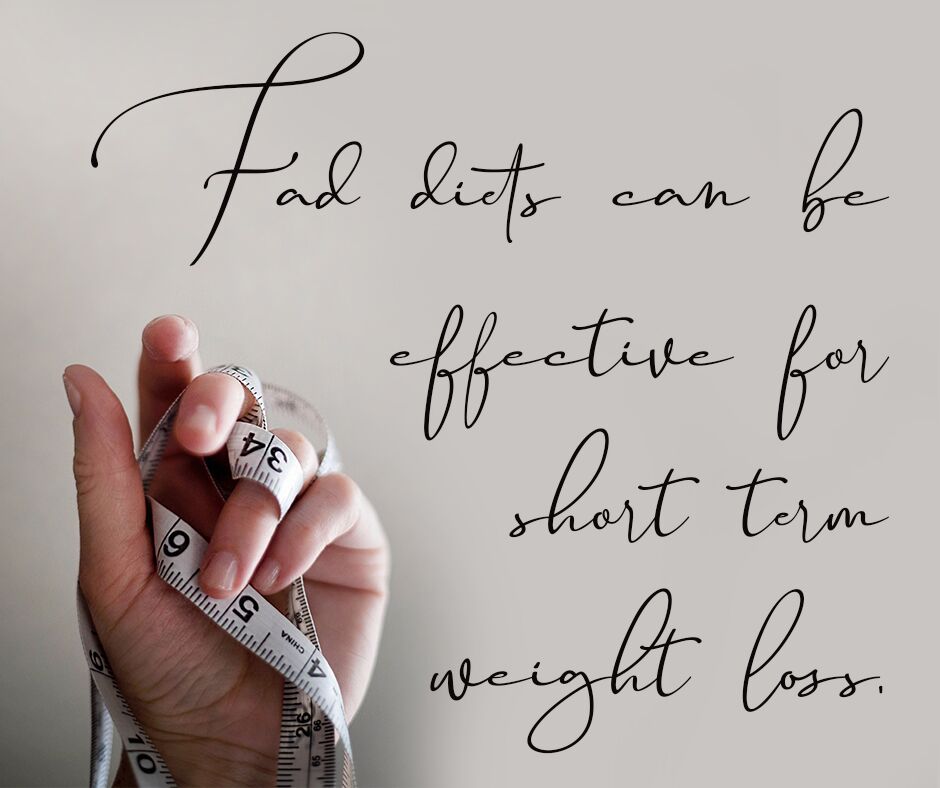This post may contain affiliate links which won’t change your price but will share some commission.
The term fad refers to something that is popular for a moment in time. Generally, fad diets come with a promise of outrageous weight loss in record time. There might be claims that the diet will revolutionize the food and health industry with a whole new eating pattern that is superior to other diets. In the past, fad diets have included:
● The five-bite diet
● Opti-fast
● Baby food diet
● Master cleanse
● Cabbage soup diet
Some diets are silly, and some are downright dangerous – but oftentimes they work. That’s why people latch onto them for a time.
Fad diets can be effective for short term weight loss or to interrupt and change poor eating habits, but most fad diets aren’t a good consideration long term. Many fad diets are based on restrictive or unusual food combinations that aren’t sustainable for long periods of time. Fad diets don’t usually become a lifestyle once the hoopla is over.
The truth is, getting serious about weight loss or changing your diet for health reasons will always result in positive change. If you begin to restrict your food intake or cut calories, you will lose weight – whether it’s from eating cabbage and drinking cayenne pepper-infused water or noshing on what our cave-dwelling ancestors ate.
Losing weight is not always simple. It involves making lifestyle changes and often these fad diets are not something we can sustain. I believe for many people that hormones, especially insulin and leptin, are key factors in why we gain and lose weight. Fad diets capitalize on our emotions and factors that some say are out of our control. Factors like:
● Genetics
● Blood type
● Hormones
● Lifestyle
Fad diets generally put the blame for weight gain or inability to lose weight on factors other than calorie intake and healthy movement. This gives the impression that bodies work best when duped rather than by maintaining a healthy balance of natural foods, healthy exercise, and a clear mind. Nonetheless, fad diets can and do work short term.
But doing nothing or a fad diet are not our only options. Learning to eat a healthy whole foods diet with a sustainable pattern is possible. Often it involves learning new information and new habits. Personally I have found the “fad” of intermittent fasting to be a sustainable habit that has changed my life. It has allowed me to eat some treats I like on some days, and it has helped me to change my insulin and hormone levels. So intermittent fasting is no longer a “fad” in my life, as I go on year 4 of fasting several times each week.
The next and newest food-based fad might be the one that sparks your interest in better health. Go for it! Explore the diet and see what it has to offer. If it seems right for you and your lifestyle and it doesn’t cause adverse effects, there’s nothing wrong with giving it a try. Fad diets have been around for years and they will continue. Find and enjoy the best parts of them and see how they affect your waistline.
Have you ever tried a fad diet? What are you thoughts about it now?


Leave a Reply